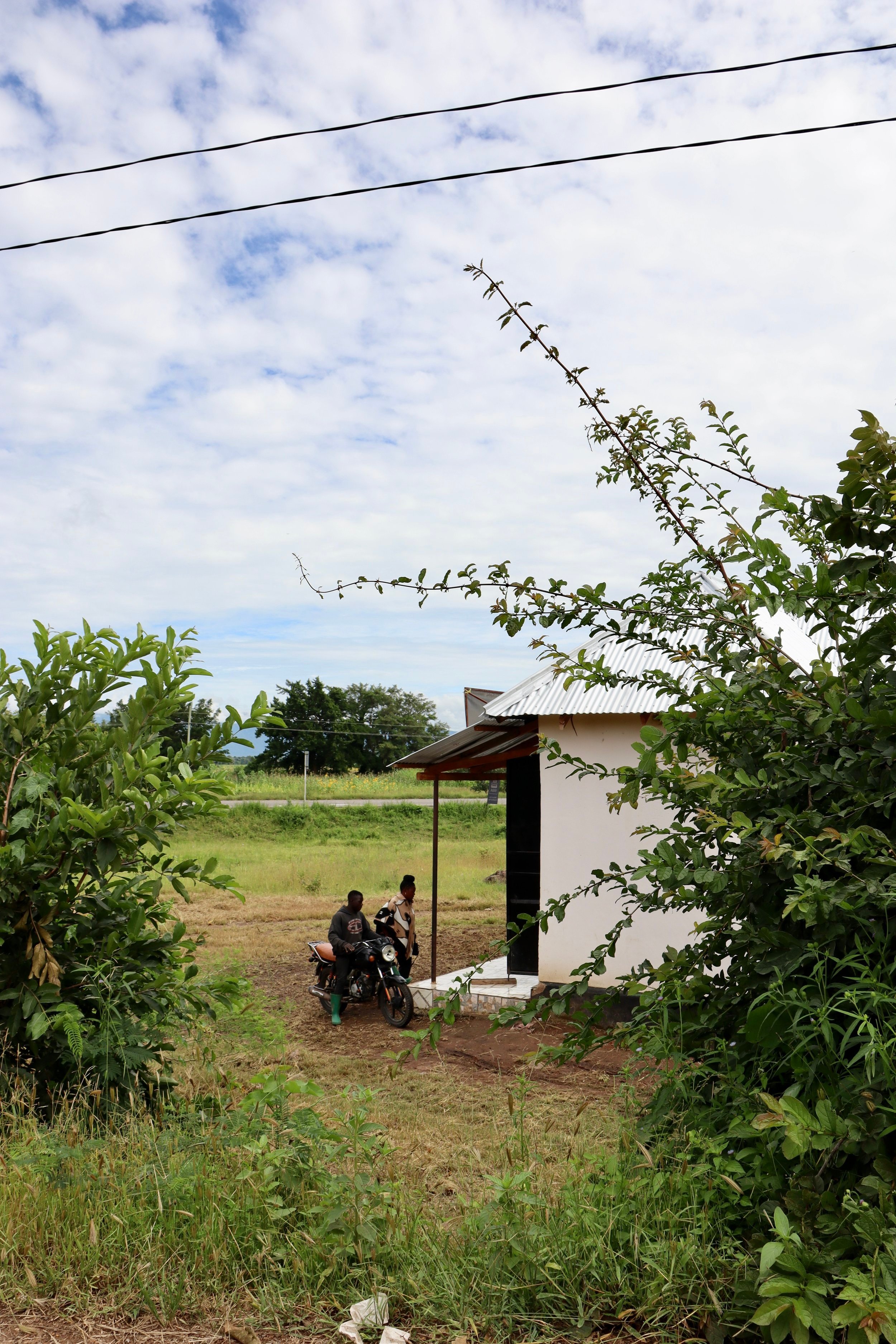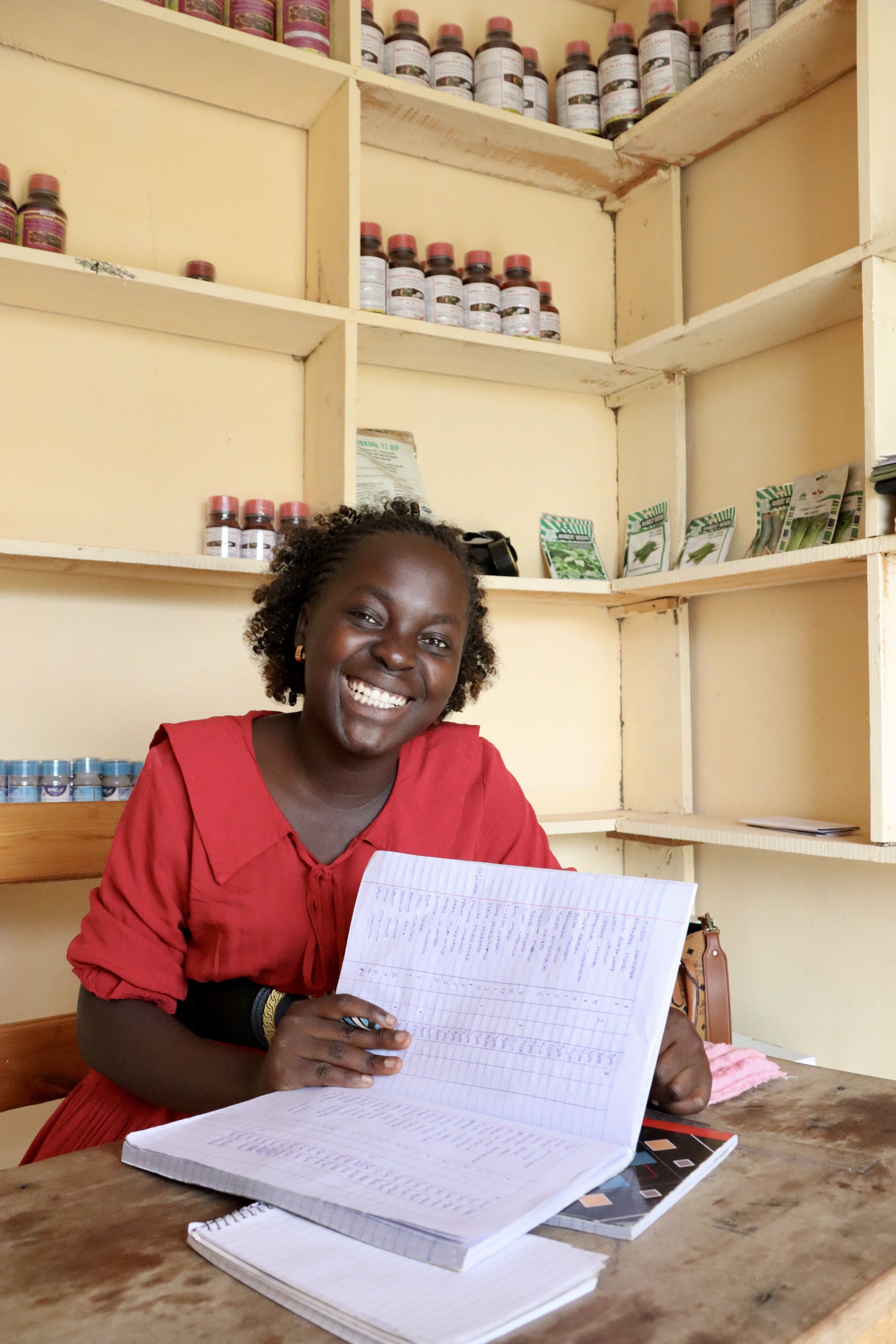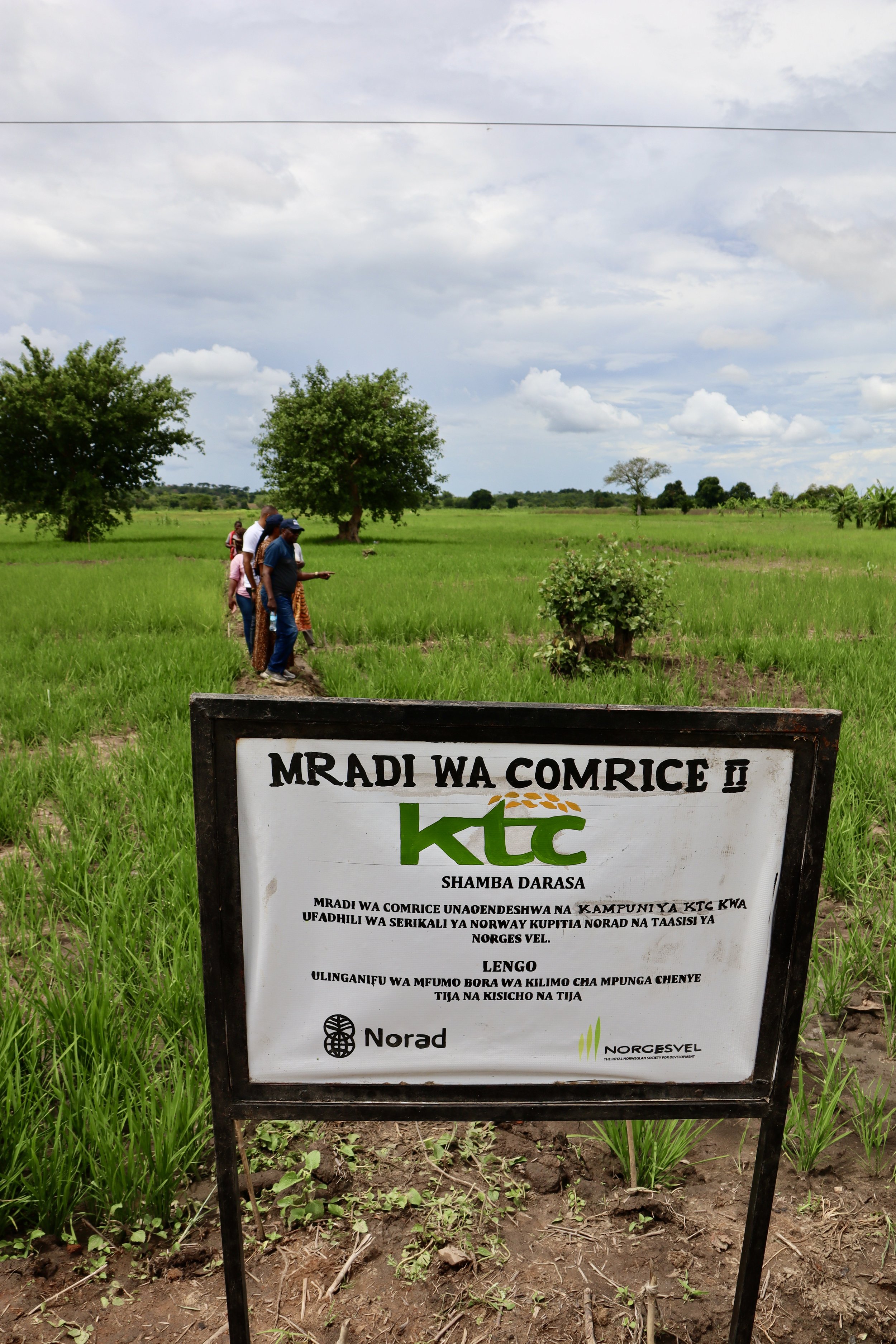Empowering Tanzanian Farmers through Farmer-Owned Companies
In Tanzania, small-scale farmers account for nearly 70% of the country’s food production, highlighting the crucial role of agriculture in the country’s economy. With rice being one of the staple crops in the country, the rice market serves as a significant source of income for small-scale farmers.
Nevertheless, it is not a given that these producers are left with a profit as they struggle to access markets and lack bargaining power. Farmer-owned companies play a critical role in strengthening food security by increasing access to markets and promoting sustainable agriculture practices.
-I see a really big change at our farm after we joined the company. My husband and I were growing rice without even thinking how we did it, and with no system. But after we bought shares in the company things changed. We got training and we implemented the Good Agricultural Practices (GAP) at our farm, and because of that, we have higher productivity,- Says Witness Simbeye, the board chairperson of the MTC company in Mbarali.
Organizing farmers in farmer-owned companies
In 2019, two farmer-owned companies were established, The Mbarali and Neigbors small scale farmers limited (MTC), and Kilombero Rice Trading Company (KTC). The primary objective of these companies is to empower small-scale farmers to participate actively in the rice value chain. The companies aim to achieve this by strenghtening the farmers’ resilience to supply and demand-side constraints, provide improved access to inputs, finance, storage, agromachinery and markets. The two companies are Norges Vel’s strategic partners in Kilombero and Mbarali districts.
Farmers become shareholders in the company by buying shares in cash, or by bringing paddy equivalent to the amount of shares they want to buy. When a farmer becomes a shareholder of the company, they get access to the company’s services such as GAP training, input loan and linkage to credit institutions, and priority access to hire agricultural machinery to support in land preparation and harvesting.
Organizing farmers in farmer-owned companies has many advantages. By pooling their resources and working together, small-scale farmers have greater market power. They can negotiate better prices for their products, access better markets, and secure better deals when it comes to inputs like seeds, fertilizer, and machinery. However, being a shareholder of a farmer-owned company isn’t just about market power but also about building a community with farmers, so they support and learn from each other.
The companies have developed several demonstration plots for farmer training and experimentation. With the demonstration plots, the farmers can observe the benefits of seed varieties, Good Agricultural Practices, and inputs.
-The farmers who were not shareholders of MTC often wondered why our farm was so fruitful. However, after joining the company, they too experienced the positive impact on their own farms. Now we actively engage in knowledge-sharing and seek advice from other farmers within the company, says Witness Simbeye.
A business mindset
Witness Simbeye has seen significant changes that the farmer-owned company has brought about for the farmers and the community. The company offers business training to shareholders, which is crucial for the farmers to develop their business skills and mindset towards farming as a business.
-I have been a part of this company since the establishment of MTC, and I can really see the development. The development in my life, but also importantly in the company. We have an input shop, agricultural machinery, and more farmers have joined the company. Our mindset has shifted towards a business-oriented approach to farming, says Witness Simbeye
Witness Simbeye is the new chair women of the MTC company in Mbarali.
The company owns agricultural machinery, such as a combined harvester, tractor and a thresher, and the shareholders have priority access to hiring them for a decent price. Access to agricultural machinery is important for the small-scale farmers in order to increase production. The machinery is also used to generate income for the company, ensuring long-term financial sustainability. This, combined with the farmers’ business skills, will benefit the company in the long run. The company’s goal is to be part of the whole rice value chain, and they have already set ambitious goals for the upcoming season.
-This year, the board of the company has set an ambitious goal of how many tons of paddy we should bring into the company. Due to the training, the machinery, and inputs, I say with confidence that we will get a good harvest and by that also reach our goal. The more we think of this as a business, the more we plan for the future, says Witness Simbeye.





